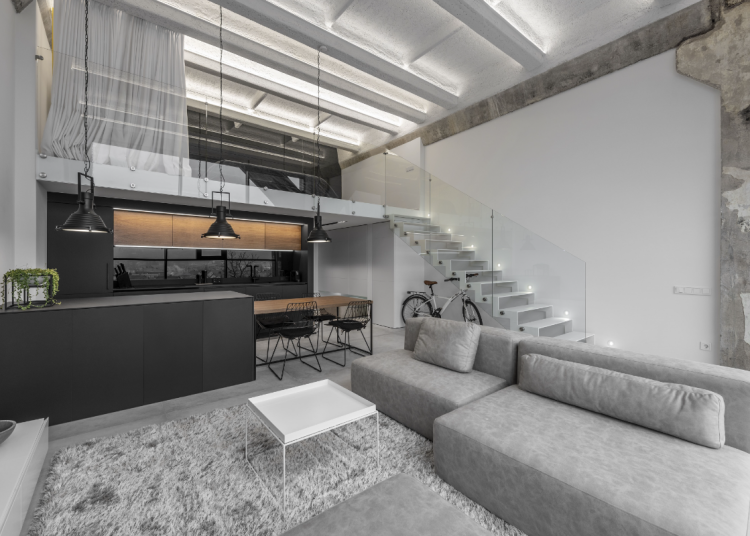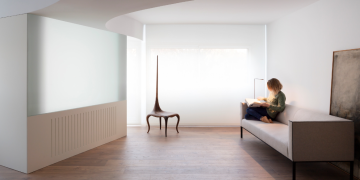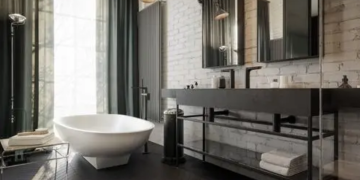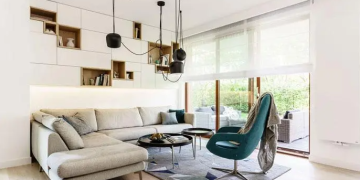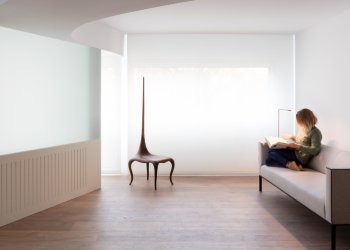In today’s fast-paced world, home entertainment systems have become an integral part of modern living. With the rise of streaming services and high-definition media, more and more people are looking to recreate the immersive experience of a movie theater in the comfort of their own homes. Central to this experience is theater-quality sound, which elevates the enjoyment of movies, music, and gaming to new heights.
Evolution of Home Entertainment
The concept of home entertainment has evolved significantly over the years. Gone are the days of bulky CRT televisions and mono sound systems. Today, consumers demand high-definition visuals and crystal-clear audio that rival the experience of a commercial movie theater. With advancements in technology, home entertainment systems have become more accessible and affordable, allowing consumers to create personalized entertainment spaces tailored to their preferences.
Understanding Theater-Quality Sound
The term “theater-quality sound” refers to audio reproduction that closely mimics the immersive experience of a commercial movie theater. This includes crisp dialogue, dynamic sound effects, and deep, rumbling bass that adds depth and realism to the viewing experience. Theater-quality sound is essential for fully immersing viewers in the on-screen action and enhancing the emotional impact of movies, TV shows, and video games.
Components of a Home Entertainment System
A typical home entertainment system consists of several key components, including audio receivers, amplifiers, speakers, and subwoofers. Audio receivers serve as the central hub, routing audio signals from various sources to the speakers and subwoofers. Amplifiers amplify the audio signals to drive the speakers, while speakers and subwoofers reproduce the sound with clarity and precision. Additionally, soundbars and surround sound systems offer simplified solutions for achieving theater-quality sound without the need for separate components.
Choosing the Right System
When selecting a home entertainment system, it’s essential to consider factors such as room size and layout, budget, and compatibility with existing equipment. Larger rooms may require more powerful speakers and subwoofers to fill the space with sound, while smaller rooms may benefit from compact, space-saving solutions. Budget considerations also play a significant role, as high-end audio equipment can be costly. However, there are options available to suit every budget and preference, from entry-level setups to premium, high-fidelity systems.
Setting Up Your Home Entertainment System
Proper setup and calibration are crucial for achieving optimal sound quality in a home entertainment system. This includes positioning speakers and subwoofers correctly to maximize sound dispersion and minimize distortion. Additionally, calibration tools and software can help fine-tune audio settings for the best possible listening experience. By taking the time to set up your home entertainment system properly, you can ensure that you get the most out of your investment and enjoy theater-quality sound in your living room.
Optimizing Sound Performance
In addition to proper setup, optimizing sound performance requires attention to factors such as room acoustics and sound treatment. Hard surfaces such as walls and floors can cause sound reflections and echoes, leading to a degraded listening experience. Sound treatment solutions such as acoustic panels and diffusers can help absorb excess sound energy and improve clarity and detail. Additionally, fine-tuning audio settings for different media, such as movies, music, and games, can further enhance the overall sound quality.
Benefits of Theater-Quality Sound at Home
The benefits of theater-quality sound at home extend beyond just watching movies. Immersive audio enhances gaming experiences by providing directional cues and realistic sound effects, drawing players deeper into the game world. Similarly, concert-like audio reproduction is a boon for music enthusiasts, allowing them to experience their favorite songs with lifelike clarity and fidelity. Moreover, theater-quality sound creates a more immersive and engaging viewing experience for movies and TV shows, making every moment feel larger than life.
Future Trends in Home Entertainment
Looking ahead, the future of home entertainment holds exciting possibilities. Advancements in audio technology, such as object-based audio and immersive sound formats like Dolby Atmos and DTS:X, promise to take the home theater experience to new heights. Integration with smart home systems will enable seamless control and automation of entertainment devices, offering users unprecedented convenience and flexibility. Moreover, personalization and customization options will allow users to tailor their entertainment experiences to their preferences and lifestyles.
Challenges and Considerations
Despite the numerous benefits of home entertainment systems, several challenges and considerations remain. Space limitations and room layout can pose challenges for setting up and optimizing audio equipment, especially in smaller or irregularly shaped rooms. Additionally, the cost of high-end audio equipment can be prohibitive for some consumers, leading them to compromise on sound quality or features. Maintenance and upgrades are also considerations, as technology evolves and new audio formats and standards emerge.
Comparison with Other Audio Solutions
When comparing home entertainment systems with other audio solutions, such as soundbars and traditional stereo setups, it’s essential to consider factors such as sound quality, immersion, and flexibility. Soundbars offer a simplified, space-saving solution for achieving better audio quality than built-in TV speakers, but they may lack the depth and clarity of a full-fledged surround sound system. Similarly, traditional stereo setups offer excellent stereo imaging and fidelity but may not provide the same immersive experience as a dedicated home theater system.
Impact on Social Gatherings and Family Time
Home entertainment systems play a significant role in social gatherings and family time, providing a focal point for shared experiences and bonding. Whether watching movies with friends, hosting game nights, or enjoying family movie marathons, theater-quality sound creates memorable moments and enhances the overall entertainment experience. Moreover, the ability to personalize and customize audio settings allows users to create tailored experiences that cater to the preferences of different individuals and groups.
Case Studies and Success Stories
Real-life examples of home entertainment setups demonstrate the transformative impact of theater-quality sound on the overall viewing experience. From modest setups in small apartments to elaborate home theaters in luxury homes, users around the world are experiencing the benefits of immersive audio firsthand. Testimonials from satisfied users attest to the joy and satisfaction of recreating the movie theater experience at home, from booming explosions to whisper-quiet dialogue.
The Role of Home Entertainment in Modern Lifestyles
In today’s fast-paced, technology-driven world, home entertainment plays a crucial role in modern lifestyles. As people seek relaxation and leisure activities to unwind from the stresses of daily life, home entertainment systems offer a sanctuary for escapism and enjoyment. Balancing screen time with other activities is essential for maintaining a healthy lifestyle, but when used in moderation, home entertainment systems can provide a welcome respite from the hustle and bustle of everyday life.
Conclusion
In conclusion, home entertainment systems offer a gateway to theater-quality sound and immersive audio experiences in the comfort of your own living room. Whether watching movies, playing games, or listening to music, theater-quality sound enhances the enjoyment of entertainment media and creates memorable moments with friends and family. By investing in a home entertainment system and taking the time to set it up properly, you can transform your living room into a personal sanctuary for relaxation, enjoyment, and shared experiences.
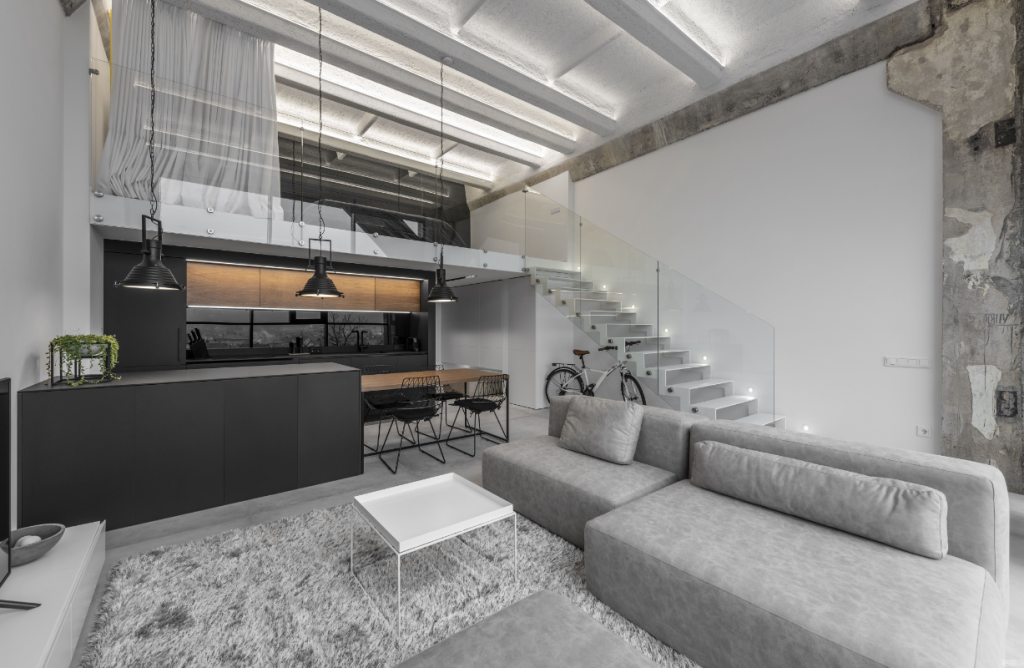
FAQs (Frequently Asked Questions) After The Conclusion:
- Do I need a dedicated home theater room to enjoy theater-quality sound?No, you don’t necessarily need a dedicated home theater room to enjoy theater-quality sound. With the right equipment and setup, you can achieve excellent audio quality in any room of your home, whether it’s a living room, den, or even a bedroom.
- How much does a home entertainment system cost?The cost of a home entertainment system can vary widely depending on factors such as the quality of the equipment, the complexity of the setup, and the size of the room. Entry-level systems can start at a few hundred dollars, while high-end setups with premium components can cost several thousand dollars or more.
- Can I install a home entertainment system myself, or do I need professional help?While some people may prefer to hire a professional installer for their home entertainment system, many systems are designed for easy DIY installation. Most manufacturers provide detailed instructions and support materials to guide you through the setup process, making it accessible to users of all skill levels.
- What’s the difference between a soundbar and a surround sound system?A soundbar is a single, compact speaker system that typically sits below or in front of your TV. It offers improved audio quality over built-in TV speakers but may not provide the same immersive experience as a surround sound system, which consists of multiple speakers positioned around the room for a more enveloping sound experience.
- Can I use my home entertainment system for gaming as well as watching movies?Yes, many home entertainment systems are well-suited for gaming, offering features such as immersive surround sound, low-latency audio processing, and compatibility with gaming consoles and PCs. Whether you’re playing action-packed shooters or immersive RPGs, theater-quality sound can enhance your gaming experience and draw you deeper into the game world.
- How often should I upgrade my home entertainment system?The frequency of upgrades for your home entertainment system depends on factors such as technological advancements, changes in your preferences, and the lifespan of your existing equipment. While some users may upgrade their systems every few years to take advantage of the latest technology, others may be content with their setups for much longer periods.
- Are there any safety considerations I should be aware of when setting up my home entertainment system?When setting up your home entertainment system, it’s essential to consider safety factors such as electrical hazards, trip hazards from cables and wires, and proper ventilation for electronic components. Additionally, be sure to follow manufacturer recommendations and guidelines for installation and usage to avoid accidents or damage to your equipment.
- Can I use my home entertainment system to stream music from my smartphone or tablet?Yes, many home entertainment systems offer Bluetooth or Wi-Fi connectivity, allowing you to stream music from your smartphone, tablet, or other Bluetooth-enabled devices. This enables you to enjoy your favorite songs and playlists with theater-quality sound in the comfort of your own home.


